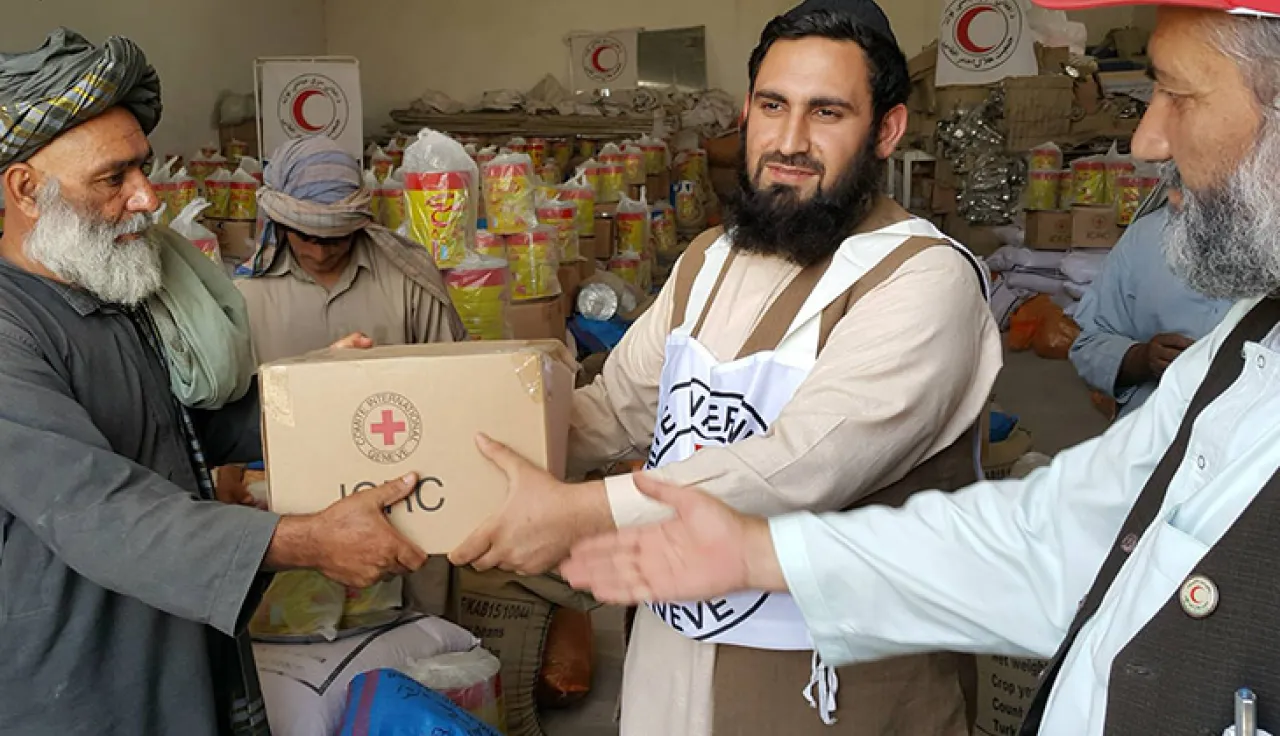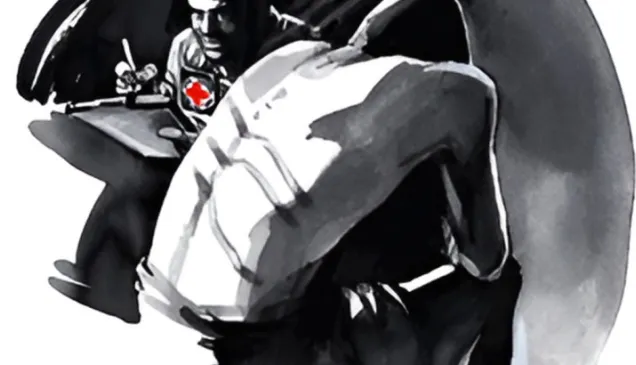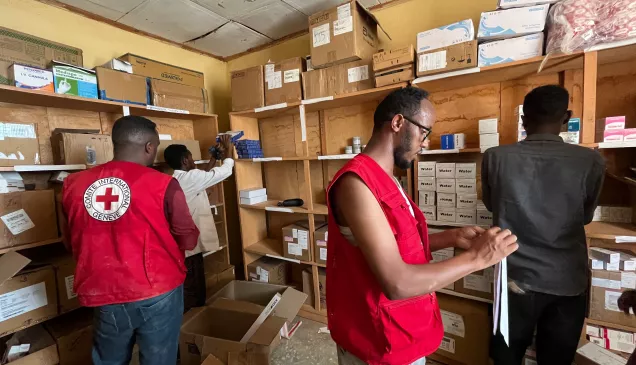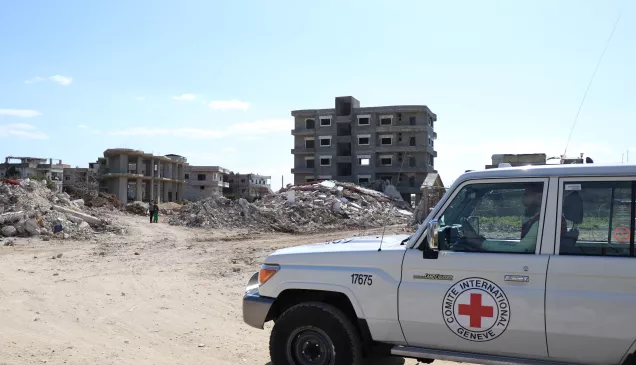Afghanistan: Facts and figures - January to June 2015

A summary of activities carried out by the ICRC in Afghanistan during the first six months of 2015.
Visiting detainees and maintaining family contact
The ICRC visits detainees in Afghanistan, monitoring their conditions and treatment. We also help family members separated by conflict to stay in touch, and endeavour to trace missing persons.
In first half of the year, the ICRC:
- made over 60 visits to 28 detention centres (housing 26,248 detainees);
- followed up with nearly 1,000 people arrested due to the conflict, of whom 245 were visited for the first time;
- helped 29 released detainees to travel home;
- collected more than 1,760 Red Cross messages between detainees and their families and distributed nearly 1600, with support from the Afghan Red Crescent Society;
- helped families to make around 2,800 phone calls and 2,450 visits to relatives held in the Afghan National Detention Facility in Parwan;
- organized 25 family visits for detainees held in Pul-i-Charkhi prison;
- received 55 queries from families about arrested relatives and 232 tracing requests from abroad, of which 62 were successfully resolved;
- facilitated the transfer of 996 remains of fighters and civilians to their families.
Supporting health care
The ICRC supports the 444-bed Mirwais Regional Hospital in Kandahar, supplying drugs, medical equipment, and providing diagnostic and critical services such as surgery, obstetrics and paediatrics.
In north-western Afghanistan, the ICRC supports the 150-bed Sheberghan Hospital, delivering medical, non-medical and logistical supplies including drugs, cleaning materials and oxygen.
In first six months of 2015, the ICRC:
- supported Mirwais and Sheberghan Hospitals, which admitted approximately 32,800 patients to surgical, medical, obstetrics and gynaecology wards, carried out over 10,100 surgical operations, and conducted more than 212,000 outpatient consultations;
- provided monthly medical and non-medical supplies to the Koringal Sub-Health Centre in Kunar;
- made 119 visits to detention centres to assess the health of detainees in Sarpoza prison in Kandahar and Herat Provincial Prison;
- provided technical and financial support to 47 Afghan Red Crescent clinics and community-based health and first-aid volunteers delivering health care to people in conflict-affected areas – the clinics conducted 477,770 outpatients consultations and administered appropriately 270,000 vaccines for childhood diseases like polio;
- granted 14 financial donations to hospitals to help with response to emergencies;
- transported over 850 wounded people to medical centres;
- delivered 37 first-aid training sessions to almost 500 people in direct contact with wounded people.
Providing limb-fitting and physical rehabilitation services
The ICRC runs seven prosthetic/orthotic centres in Afghanistan, providing rehabilitation services for amputees and other people with disabilities, including vocational training, micro-credit loans and home education for children with disabilities.
During the first six months of 2015, the centres:
- assisted 64,895 patients;
- registered more than 4,700 new patients, of whom 619 were amputees;
- made 9,720 prostheses and orthoses;
- provided over 131,800 physiotherapy treatments to patients;
- granted micro-credit loans to 342 patients to start their own small businesses;
- facilitated the ongoing vocational training of 358 patients – 94 graduated from January to June 2015;
- made 3,725 home visits, assisting approximately 3,200 patients with spinal cord injuries.
Delivering aid
The ICRC, in partnership with the Afghan Red Crescent Society (ARCS), provides emergency food assistance and other essential items to people displaced by conflict or natural disaster, helping them to meet their basic needs.
With support from the ICRC:
- 68,100 people received basic aid, such as food and water;
- 91 households (approximately 1,000 individuals) received cash to cover emergency medical treatment and funeral expenses of family members injured or killed in the conflict;
- 25 vulnerable women-headed households received 25 chickens, feeders and other equipment, and training on good poultry management practices, helping them to earn an income to support their household;
- 23 workers received basic veterinary kits and training on animal health services, improving the health and productivity of the animals and increasing food production;
- 86 para-veterinarians received drugs to help them de-worm and treat farm animals against different diseases;
- 100 nomad pastoral farmers attended training, learning how to better manage and protect their animals;
- 595 people benefited from 15 cash-for-work projects, enabling households to better protect and cultivate their land.
Improving water and sanitation services
The ICRC works with closely with local authorities in Afghanistan to build and repair water systems, construct and renovate health and physical rehabilitation facilities, and promote improved sanitation and hygiene in prisons and detention centres.
In the first six months of the 2015, the ICRC:
- enabled approximately 95,400 people to have access to water for household needs in rural areas of Bamyan, Daykundi, Ghazni, Kapisa, Khost, Nangarhar, Parwan, Herat, Farah and Faryab provinces;
- completed the construction of new visitor shelters at Pul-e-Charkhi Central Prison (which houses over 8,500 detainees);
- improved access to water for more than 4,400 detainees in Pul-e-Charkhi Central Prison;
- improved living conditions for over 5,000 detainees following upgrades to detention facility infrastructure;
- improved general facilities at Balkh and Herat Provincial Prisons, benefiting around 4,000 detainees;
- completed an extension of the physical rehabilitation centre in Lashkar Gah, where more than 40 employees with disabilities and 100 patients (and relatives) receive daily treatment.
Working in partnership with the Afghan Red Crescent Society
The ICRC works closely ARCS, providing the organization with technical and financial assistance to help deliver services to the community and implement a range of humanitarian programmes.
In the first half of 2015:
- ARCS and ICRC started work on eight activities and projects in health, assistance to families displaced by conflict, restoring family links and emergency preparedness;
- ARCS conducted a mid-term review of its operational plan to track progress towards achieving planned results and ensure that the resources to carry out the activities are adequate – participants included representatives of the International Federation of the Red Cross and Red Crescent Societies, the Canadian Red Cross and the ICRC;
- ARCS and ICRC held an orientation session on the International Red Cross and Red Crescent Movement's history and Fundamental Principles for the Afghan President's representative who will facilitate all ARCS-related affairs with the Afghan President (a patron of the ARCS).
Promoting compliance with international humanitarian law
The ICRC promotes compliance with international humanitarian law (IHL), reminding warring parties of their obligation to protect civilians and spreading knowledge of IHL among civil society groups, government bodies and academics.
From January to June, the ICRC:
- conducted briefings on its mandate and work for more than 21,000 people, including civil society members, community elders, religious scholars, political authorities, members of the national army, the national police, local police units, the National Directorate of Security, the armed opposition and people receiving ICRC assistance.
For more information:
Antonia Paradela, ICRC Kabul, tel: +93 729 140 510
Zarlasht Sarmast, ICRC Kabul, tel: +93 794 618 908
Neha Thakkar, ICRC, Geneva, tel: +41 22 730 3160



